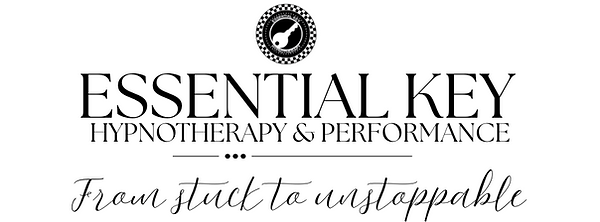Beneath The Mask - Because faking it is exhausting
- jadean13
- Apr 29, 2025
- 3 min read

Let’s talk about something unexpected, a little controversial—and surprisingly a bit helpful on the healing journey:
Artificial Intelligence. There, I said it.
It’s no secret that the world is having a hard time fully accepting AI. For many, it feels unfamiliar… maybe even a little threatening. And that makes sense—AI is new, fast-moving, and challenges the way we’ve always done things. But here’s the truth: AI is already here. It’s not going away. And like anything else in our evolving world, we can choose how we relate to it—with fear and resistance, or with mindfulness and intention.
While AI might sound like the opposite of intuition and inner work, but when used intentionally, it can become a beautiful companion tool for your growth, reflection, and transformation.
So Let’s Talk About Positive Ways AI Can Support Mental Well-Being
Emotional Support & Self-Reflection Tools
AI-based platforms like ChatGPT can help people process feelings, explore thoughts, and practice self-reflection—especially when access to human support is limited.
Mental Health Apps & Chatbots
AI powers mood-tracking apps, meditation guides, and therapeutic chatbots that offer grounding exercises, affirmations, or CBT-style tools in real-time.
Accessibility & Affordability
AI can offer supportive conversations and guided practices for people who might not be able to afford or access therapy.
Companionship & Non-Judgmental Listening
AI provides a safe space for people to vent, journal, or explore topics they may not feel ready to share with others.
Customized Resources
From personalized affirmations to goal tracking, AI can adapt to your unique emotional and cognitive patterns—helping you build awareness and confidence.

And Just to Be Clear…
AI is not a therapist. It is not a substitute for human support, emotional safety, or professional care.
Potential Risks to Watch For:
Over-Reliance or Isolation
If AI replaces human connection rather than supplementing it, users might become more isolated or avoid real-life emotional work.
Misinformation or Misguidance
While AI is powerful, it isn’t a licensed therapist. Relying solely on AI for mental health advice without nuance can lead to misinformation or oversimplification.
Algorithmic Bias or Emotional Mismatch
AI responses may not always be emotionally attuned, which can cause frustration or make someone feel misunderstood.
Privacy Concerns
Mental wellness is deeply personal—so using AI-powered apps or tools requires awareness about data privacy and consent.
Mental Fatigue from Tech Overload
Increased screen time or AI interaction can contribute to digital burnout or reduced mindfulness if not balanced.

Here’s what I believe:
When used with intention and care, AI can support real transformation. It’s
not a replacement for inner work—but it can be a powerful companion to it.
I’ve been exploring ways to blend AI tools with the deep healing work of hypnotherapy, and what’s unfolding is pretty cool.
That’s also why I created Beneath the Mask—a special free offering that combines hypnotherapy and guided reflection (with a little help from AI) to gently uncover:
The roles you play to feel safe or accepted
The beliefs that quietly hold you back
The truths you’re ready to reclaim
This experience is all about stepping into who you really are beneath the performance, the protection, and the pressure.
This is not about becoming someone new. It’s about remembering who you already are.

Going Deeper with Hypnotherapy: Growth Beyond the Mask
Exploring your inner world with prompts like “Beneath the Mask” is a powerful first step. These reflections can help you recognize the parts of yourself you’ve hidden to feel safe, accepted, or in control. But what happens next?
That’s where hypnotherapy can support true transformation.
When you’re ready to go deeper:
Hypnotherapy helps gently unearth the subconscious beliefs that created the mask in the first place — the quiet “rules” you’ve been living by without even realizing it.
In a safe, relaxed state, you can rewire limiting beliefs, release old emotional patterns, and reconnect with your most authentic self.
Instead of just understanding the mask, hypnotherapy supports you in removing it with compassion — and replacing it with confidence, clarity, and self-trust.
You don’t have to do it alone.
Stay amazing,
Jeanene
.png)



.png)